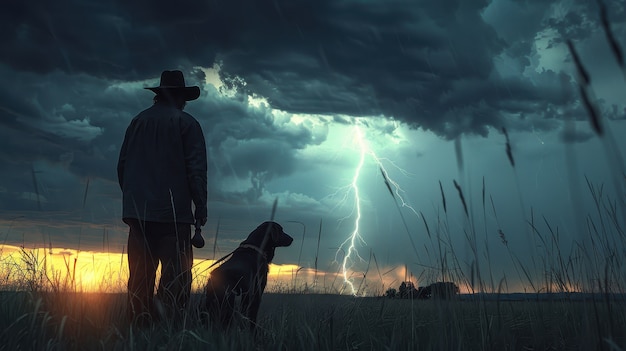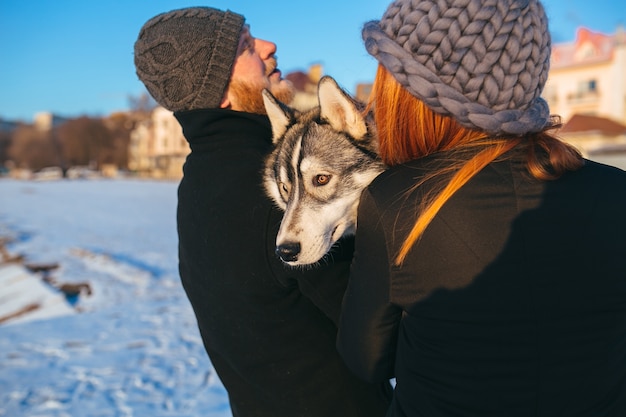Protecting Pets from Summer Storm Emergencies in Indianapolis

Protecting Pets from Summer Storm Emergencies in Indianapolis
Summer storms in Indianapolis can arrive suddenly, sweeping through the city with loud thunder, flashing lightning, and heavy rainfall. For pet owners, these dramatic weather events raise real concerns—not only about your own peace of mind but also for your pets’ safety and wellbeing. Pets can become frightened, stressed, or even injured during severe storms. Knowing how to prepare for summer storm emergencies, recognizing the signs of storm-related anxiety or injury, and understanding where to turn for immediate help are all key steps in keeping your pet safe. At VetCheck Pet Urgent Care Center - Greenwood and Indianapolis, located at 5335 Southport Road, Suite 400, Indianapolis, IN 46237, our veterinary team is here for you when summer storms strike. Walk-ins are always welcome; no appointment is needed, and we are open when your regular veterinarian may not be available. This guide will help you recognize symptoms of pet storm emergencies in Indianapolis, understand the underlying causes, learn about professional treatment options, and discover ways to prevent storm-related emergencies for your furry family members.
As you read, you’ll find practical tips for handling pet anxiety thunderstorms can cause, learn when to seek urgent pet care, and see why VetCheck Pet Urgent Care Center is your trusted resource for emergency veterinary care in Indianapolis and surrounding communities.
Recognizing Signs of a Pet Storm Emergency in Indianapolis
When summer storms roll through Indianapolis, the changes in your pet’s behavior may be the first sign that something is wrong. Dogs and cats are especially sensitive to atmospheric shifts, loud noises, and flashes of lightning. Symptoms of a pet storm emergency can range from mild anxiety to more serious physical injuries or acute medical concerns.
Common signs that your pet is experiencing distress during a thunderstorm include shaking, hiding under furniture, excessive barking or meowing, and pacing restlessly. Some pets may drool more than usual, refuse food, or seek constant reassurance from their owners. In severe cases, panic may lead to attempts to escape, resulting in broken teeth, torn nails, or cuts. If your pet is allowed outdoors, watch for disorientation or confusion after a storm, which can signal head trauma or shock. Additionally, after a storm passes, symptoms such as limping, wounds, bleeding, or difficulty breathing may indicate injury from debris or falling objects.
Recognizing these warning signs early is vital. Pet storm emergencies in Indianapolis can escalate quickly, and prompt action can prevent complications. If your pet’s anxiety seems unmanageable or you notice physical injuries, seeking immediate help from an emergency veterinarian near me is the best course of action.
Why Summer Storms Cause Pet Anxiety and Emergencies
Thunderstorms are a leading cause of seasonal anxiety and emergencies for pets in Indianapolis. Several factors contribute to this heightened risk. The loud booms of thunder, flashes of lightning, changes in barometric pressure, and sudden drops in atmospheric conditions can all trigger anxiety in sensitive animals. For some pets, past traumatic experiences or underlying medical conditions may make them even more vulnerable to storm-related stress.
Environmental dangers also increase during storms. High winds can knock down tree branches, fences, or outdoor furniture, potentially injuring pets who are outside or near windows. Flooding can trap animals, and lightning strikes pose direct risks. Additionally, electrical outages may disable containment systems, allowing pets to escape or become lost. In the aftermath, sharp debris or downed power lines can cause lacerations and other injuries, which may require laceration repair surgery.
Another common consequence of storm anxiety is destructive behavior. Pets may chew or scratch at doors, windows, or crates in an attempt to flee perceived danger. This can result in broken teeth, nail injuries, or even head trauma. Gastrointestinal upset, such as vomiting or diarrhea, can also occur as a result of acute stress. If you notice your pet displaying these signs, it is important to consider both their emotional and physical health.
Professional Treatment for Pet Storm Emergencies in Indianapolis
When your pet faces a storm-related emergency, immediate access to care is crucial. At VetCheck Pet Urgent Care Center - Greenwood and Indianapolis, our veterinarians are equipped to handle a wide range of storm-related injuries and anxiety concerns. Walk-ins are welcome, and no appointment is necessary, making us your first stop when you need an urgent care vet near me.
Treatment approaches for pet storm emergencies in Indianapolis depend on the specific problem. For anxiety and stress, our veterinary professionals may recommend calming techniques, environmental modifications, or safe medications to help alleviate your pet’s distress. If your pet has suffered physical injury, such as a deep cut, puncture wound, or broken limb, surgical intervention or advanced wound care may be required. Our team can provide laceration repair surgery, wound management, and pain relief as needed.
In cases where your pet has ingested hazardous materials during or after a storm—such as floodwater, chemicals, or toxic plants—immediate evaluation is essential. Our toxicology and pet poison control services include rapid diagnosis and life-saving treatment plans. Additionally, our in-house diagnostic tools allow us to quickly assess your pet’s condition and start appropriate care right away.
For pets experiencing acute gastrointestinal issues, such as vomiting or diarrhea triggered by storm stress, our veterinarians can provide treatment for gastrointestinal emergencies and supportive therapies. No matter the scenario, our goal is to stabilize your pet, relieve their discomfort, and provide peace of mind for you during a stressful time.
Preventing Summer Storm Emergencies: What Pet Owners Can Do
While you can’t control the weather, you can take proactive steps to keep your pet safe before, during, and after a storm. Preparation is key in minimizing pet storm emergencies in Indianapolis. Start by creating a safe, quiet area in your home where your pet can retreat during storms. This could be a crate with soft bedding, a bathroom, or a room without windows. Familiar toys, blankets, and an item with your scent can provide comfort.
Consider playing calming music or using a white noise machine to mask thunder sounds. If your pet is particularly noise-sensitive, speak with your veterinarian about anxiety-reducing options before the storm season starts. For pets with a history of storm phobia, practice desensitization techniques on clear days to reduce fear over time.
Make sure your pet’s identification is up to date, including microchip information and collar tags, in case they escape during a storm. Always bring your pets indoors at the first sign of severe weather, and secure outdoor spaces to prevent injuries from debris. Inspect your yard after a storm for downed branches, sharp objects, or chemicals that could harm your pet.
Monitor your pet closely for signs of illness or injury during and after the storm. If you notice vomiting, diarrhea, limping, or wounds, act quickly to seek help. Many pet owners in Indianapolis and surrounding communities now keep the contact details for an emergency vet near me handy, so they are prepared for any situation.
When to Seek Immediate Veterinary Care for Storm-Related Emergencies
Certain situations require prompt attention from a veterinary team experienced in emergency care. If your pet is showing severe anxiety that does not resolve with comfort, has suffered a visible injury such as a deep cut, is having difficulty breathing, is limping, or appears disoriented, do not wait for symptoms to improve on their own. Additionally, if your pet has ingested a potentially toxic substance, such as antifreeze, pesticides, or contaminated floodwater, urgent evaluation is necessary.
Other red flags include persistent vomiting or diarrhea, bleeding that will not stop, signs of shock such as pale gums or rapid breathing, and any evidence of neurological symptoms like seizures or collapse. These are all indications of a pet storm emergency in Indianapolis that should not be ignored.
At VetCheck Pet Urgent Care Center - Greenwood and Indianapolis, our veterinarians are available to provide immediate care—walk-ins are always welcome, and we are open when your regular veterinarian is not. Our comprehensive emergency and urgent care services ensure your pet receives the attention they need, exactly when they need it. If you are ever unsure whether your pet’s symptoms constitute an emergency, err on the side of caution and bring them in for evaluation.
Conclusion: Your Partner for Pet Storm Emergencies in Indianapolis
Indianapolis summers bring unpredictable weather, but they do not have to mean uncertainty for your pet’s safety. By learning to recognize the signs of a pet storm emergency in Indianapolis, understanding what causes storm-related anxiety and injuries, and knowing when and where to seek immediate help, you are taking important steps to protect your beloved companion. Remember, at VetCheck Pet Urgent Care Center - Greenwood and Indianapolis, our veterinary professionals are always ready to help—whether your pet is struggling with pet anxiety thunderstorms can trigger or has sustained an injury during a storm.
Walk-ins are welcome, no appointment is needed, and we are open during evenings, weekends, and holidays to ensure your pet is never left without care. If you need an emergency vet near me, or urgent care vet near me for pet storm emergencies in Indianapolis or surrounding communities, rely on our skilled team for fast, compassionate attention. For more information about our emergency veterinary care, or to speak with our team, call us anytime at (317) 934-9953, or visit us at 5335 Southport Road, Suite 400, Indianapolis, IN 46237. Your pet’s wellbeing is our highest priority, no matter what the weather brings.
Medical Disclaimer: This blog is intended for informational purposes only and does not substitute for professional veterinary advice, diagnosis, or treatment. If you have concerns about your pet’s health, please contact our veterinary team or visit your nearest emergency veterinary clinic immediately.





.webp)













